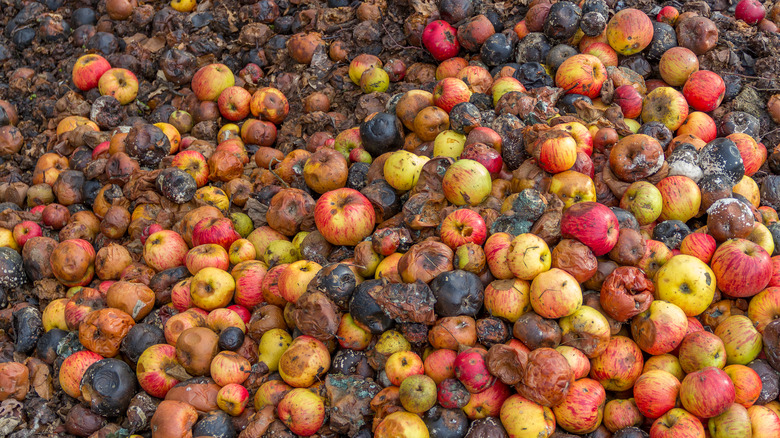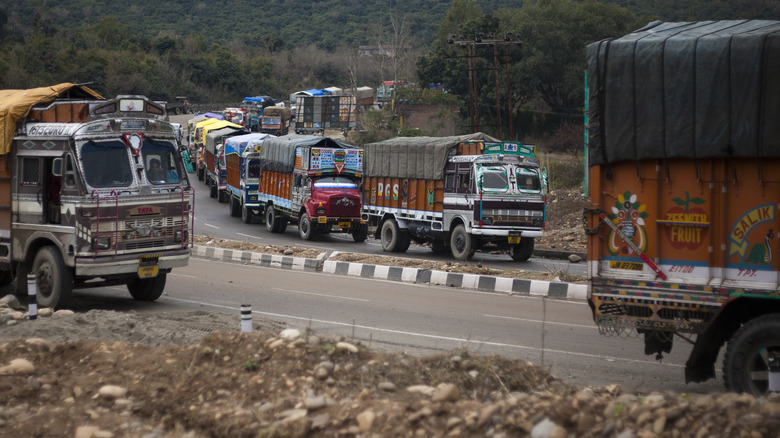Why $12 Million Of Apples Are Rotting On An Indian Highway
As the global food crisis worsens, nations are feeling the dire effects, some, though, more than others. One place this is particularly true is India, which is home to 25% of the world's undernourished population, reports the World Food Programme. From Russia's war in Ukraine and the effects it has had on grain exports, to their domestic drought, Indians are faced with severe shortages of staple items and unprecedented prices, according to the Times of India.
For these reasons, stories of food waste in India have a distinct sting to them. Indian Express notes that around 40% of food in the country is unused for a variety of factors, such as poorly managed supply chains. This amounts to 50 kilograms (roughly 110 pounds) of food per person every year, which is staggering when put in the context of India's total population of 1.38 billion (per the World Bank).
Now, a mounting issue in the country's disputed Kashmir region is adding stress to farmers whose livelihoods depend on getting the literal fruits of their labor to market.
Roadwork has caused massive delays
Roadwork on the primary highway artery connecting the Kashmir Valley to greater India has caused massive delays and waylaid thousands of trucks carrying produce out of the region, according to Reuters. Because of this, 8,000 truckloads of apples, which the head of the Kashmir Valley Fruit Growers and Dealers Union values at $12.25 million, are beginning to rot.
The area is reliant on its many fruit farms. More than three million Kashmiri are employed in some aspect of the industry, and protests by farmers recently shut down the region's 10 wholesale produce markets (via Reuters). Truckers on the Srinagar-Jammu highway have reported being stuck for as many as six days waiting for the road to reopen.
India is thought to be on relatively good footing in regard to overall ability to weather the current food crisis. This is due to a strong agricultural sector that can produce and store amply for the population. They've also implemented a number of food export bans, reports Bloomberg, a move largely seen as food protectionism by the international community. While understandable, halting the flow of food to nations that depend on those imports could further exacerbate shortages in some of the world's poorest countries.

